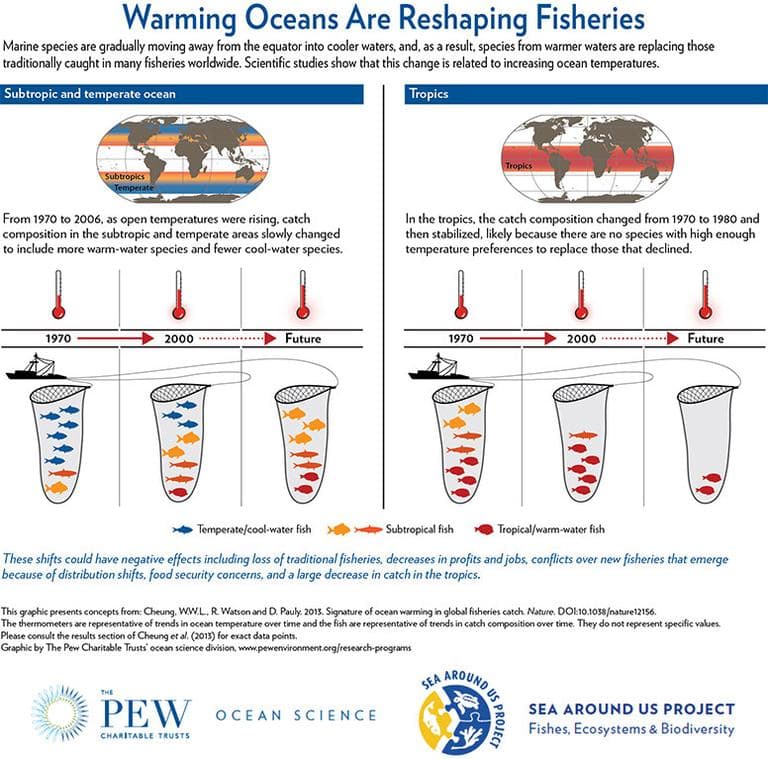Advertisement
Warming Waters Are Changing Global Fish Catches
ResumeA sweeping new study concludes that climate change is putting global fish stocks on the move.
Published in the journal Nature on Wednesday, the study (PDF) shows that for 40 years now, warming waters have been driving global fish stocks toward cooler, deeper waters. That includes Northeast groundfish, such as cod and flounder.
When fishery biologist Jud Crawford was growing up in New England, he never saw some of the species that are now common in Northeast waters.
"Populations of blue crab, which is something we think as being something we see in the Chesapeake Bay," Crawford said. "We see Atlantic croaker, which we think of as a mid-Atlantic species moving increasingly northward." And he sees far fewer cod, too.
Warming Waters
Last year, the surface temperatures in the Northeast Shelf Large Marine Ecosystem were the highest ever recorded. But the observed changes in local fish populations could be caused by any number of things.
But now, for the first time, a widespread study concludes that it's not a local problem.
"Global ocean warming already affects the fisheries around the world by changing the species compositions of the catch," explained William Cheung, a fisheries scientist at the University of British Columbia and the lead author of the study. He analyzed fish catches globally from 1970 to 2006. What Cheung found is a clear trend — not just here, but all over the world.
"We are seeing changes in composition of fish catch, with increasing catch of warmer-water species and less proportions of cooler water species," Cheung said.
Cheung said the trend of more tropical and sub-tropical species is especially acute in the more temperate American waters off of Alaska and New England.
Commercial Fishing
Commercial fishermen in the Northeast have been seeing this. As a group, they didn’t catch nearly as many cod and other groundfish this past year as they were allowed.
"Some of our largest processors here in New England have had to resort to importing from Iceland, Norway, Newfoundland and Canada as primary source of haddock and cod," said Richie Canastra, co-owner of the New Bedford and Boston Seafood Auctions.
Canastra spoke at a recent rally on Boston’s fish pier, where he called for raising catch limits.
But the study authors suggest otherwise. And so does fishery biologist Jud Crawford with The Pew Charitable Trusts, which partly funded the study. He said the way to help groundfish, such as cod and haddock, that are being squeezed by warmer waters is to lower other pressures, like commercial fishing.
"A very important response is going to be to substantially improve the way that we protect ocean habitat," Crawford said.
The new study could inform a policy decision due next month. The National Marine Fisheries Service is set to decide whether to open up 5,000 square miles of protected waters to bottom trawl fishing.

